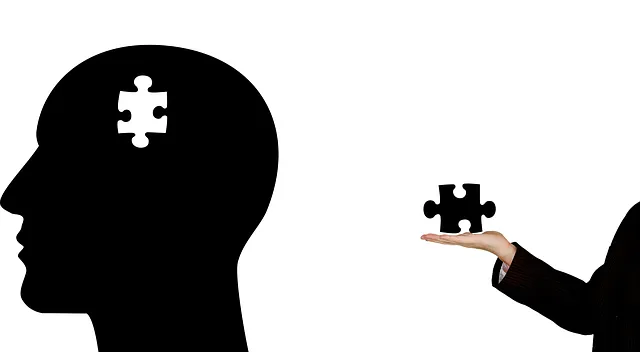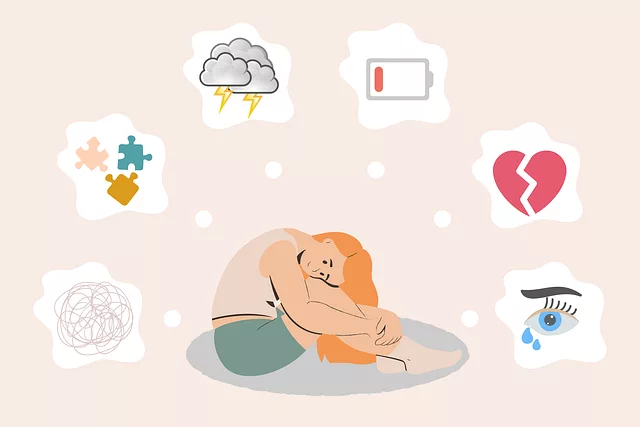Longmont Kaiser's specialized mental health classes tackle the complexities of diagnosis by combining education, research, and technology. These initiatives empower healthcare professionals with advanced crisis intervention skills, improving accuracy and tailored treatment for diverse patient presentations. Incorporating AI and digital platforms enhances assessment, while community collaboration ensures holistic understanding, stigma reduction, and supportive environments for better mental health outcomes.
Mental illness diagnosis accuracy is a complex issue, with challenges ranging from subjective symptoms to cultural biases. This article explores efforts to improve diagnostic precision, focusing on initiatives led by institutions like Longmont Kaiser. We discuss their innovative approach, educational programs for healthcare professionals, and the integration of advanced technologies in assessment. Additionally, community support and collaboration are highlighted as key strategies for refining mental health diagnosis, drawing from the success of Longmont Kaiser’s mental health classes.
- Understanding the Challenges of Mental Illness Diagnosis
- Longmont Kaiser's Approach to Enhancing Diagnostic Accuracy
- Educational Initiatives and Their Impact on Clinical Practice
- Incorporating Innovative Technologies for Improved Assessment
- Community Support and Collaboration in Diagnosis Refinement
Understanding the Challenges of Mental Illness Diagnosis

Mental illness diagnosis presents a complex challenge due to its subjective nature and diverse manifestations. Many factors contribute to the difficulty, including individual experiences, cultural influences, and comorbidity rates, making it a multifaceted problem that requires holistic approaches for accurate assessment. The environment plays a significant role; settings like Longmont Kaiser mental health classes provide opportunities for education, where individuals can learn about their conditions, fostering self-awareness and empowerment.
These classes often incorporate Resilience Building techniques, Coping Skills Development strategies, and Emotional Well-being Promotion Techniques to equip participants with the tools needed to navigate their mental health journeys. By understanding the nuances of mental illness, individuals can actively engage in their care, leading to more accurate diagnoses and effective treatment plans tailored to their unique needs.
Longmont Kaiser's Approach to Enhancing Diagnostic Accuracy

Longmont Kaiser has pioneered an innovative approach to enhancing mental illness diagnosis accuracy through a comprehensive program that includes specialized mental health classes. These classes are designed to equip healthcare professionals with advanced skills in crisis intervention and risk assessment, crucial elements for making precise diagnoses. The program leverages cutting-edge research and best practices to provide practitioners with the tools needed to navigate complex cases effectively.
By focusing on both theoretical knowledge and practical application, Longmont Kaiser’s initiative ensures that mental health professionals are well-prepared to handle a wide range of patient presentations. This includes guidance on recognizing subtle symptoms and understanding the nuances of various mental health conditions, such as anxiety relief strategies. The end goal is to improve diagnostic accuracy, leading to more effective treatment plans and better outcomes for individuals struggling with mental illness.
Educational Initiatives and Their Impact on Clinical Practice

Educational initiatives play a pivotal role in enhancing mental health diagnosis accuracy and improving clinical practice. Longmont Kaiser mental health classes are a prime example of such efforts, designed to equip healthcare professionals with advanced knowledge and skills. These classes delve into the latest research, best practices, and innovative techniques for diagnosing and treating various mental health disorders. By fostering continuous learning and professional development, healthcare providers can better understand complex cases, reduce misdiagnosis rates, and ultimately improve patient outcomes.
The impact of these educational initiatives extends far beyond individual practitioners. They contribute to a broader Mental Health Awareness movement, empowering not just doctors but also the general public. Longmont Kaiser’s mental wellness coaching programs development, for instance, focuses on promoting emotional well-being through interactive workshops and personalized coaching sessions. Such initiatives not only enhance Mental Wellness Coaching Programs but also encourage individuals to take charge of their mental health proactively. Through Emotional Well-being Promotion Techniques, communities are better equipped to recognize early signs of distress, seek timely help, and support one another, creating a network of care that enhances overall mental health literacy.
Incorporating Innovative Technologies for Improved Assessment

Incorporating innovative technologies has emerged as a powerful tool to enhance mental health assessment and diagnosis accuracy, especially in settings like Longmont Kaiser mental health classes. With advancements in artificial intelligence (AI) and digital platforms, professionals now have access to more sophisticated methods for evaluating patients’ psychological states. These technologies enable thorough and efficient data collection, allowing for comprehensive analyses that can improve diagnostic precision.
For instance, AI-powered tools can analyze patterns within a patient’s speech or behavior, providing valuable insights that aid in identifying specific mental health conditions. Additionally, digital platforms offer remote assessment options, ensuring easier access to care and reducing barriers for individuals seeking support. By integrating these innovative strategies, such as Empathy Building Strategies and Emotional Well-being Promotion Techniques, Longmont Kaiser can enhance the overall emotional regulation of patients, leading to more effective treatment planning.
Community Support and Collaboration in Diagnosis Refinement

In an effort to enhance mental illness diagnosis accuracy, community support and collaboration play a pivotal role. Longmont Kaiser mental health classes are one such initiative that brings together various stakeholders, including healthcare professionals, researchers, and community members, to share knowledge and best practices. These collaborative efforts foster a more holistic understanding of mental health conditions, leading to improved diagnostic tools and techniques. By combining expertise from diverse fields, communities can develop comprehensive strategies that address not only diagnosis refinement but also burnout prevention and depression prevention.
Moreover, such collaborations actively engage in Mental Illness Stigma Reduction Efforts. Through open dialogues and educational programs, community members learn about the complexities of mental illness, promoting empathy and understanding. This collective approach not only improves diagnostic accuracy but also creates a supportive environment that encourages individuals to seek help without fear of judgment. By breaking down barriers and reducing stigma, communities can ensure that those struggling with mental health issues receive the necessary support and treatment.
Mental illness diagnosis accuracy is a multifaceted challenge that requires a combined effort from healthcare professionals, educational institutions, and community support. As highlighted by Longmont Kaiser’s innovative approach and successful initiatives, such as their mental health classes, continuous learning, and technology integration, significant improvements are achievable. By fostering collaboration and adopting evidence-based practices, we can enhance diagnostic accuracy, ultimately leading to better patient outcomes and a more supportive mental health landscape.






